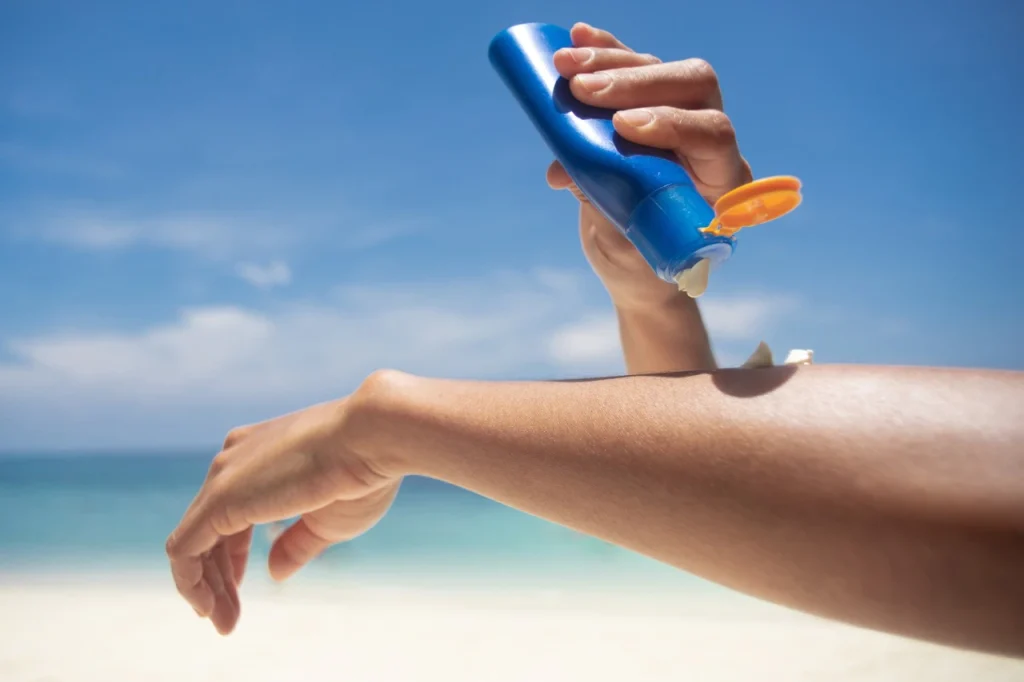Shea butter has some natural sun protection properties. Still, it is not strong enough to be used as a standalone sunscreen. The natural SPF of shea butter is estimated to be between 6 and 10, which is insufficient to protect the skin from the harmful effects of the sun. It is always essential to use sunscreen with an SPF of at least 30 when you are going to be exposed to the sun, especially during the peak hours of 10 a.m. to 4 p.m. It is also a good idea to reapply sunscreen every two hours or immediately after swimming or sweating. Shea butter is not waterproof, meaning it will wash off when exposed to water.

Sunscreen Properties of Shea Butter
Studies suggest that shea butter possesses properties that may help protect the skin from sun damage when applied topically. It contains cinnamic acid, which acts as an ultraviolet radiation absorber with an SPF (sun protection factor) of 6 to 10. However, it is important to note that this rating is lower than what’s considered optimal for protecting skin from sunburns.
Risks of Using Shea Butter as Sunscreen
There are several risks associated with using shea butter as a sunscreen. First and foremost, it does not provide adequate protection against the sun’s UV rays, which can cause sunburn, skin aging, and skin cancer. Second, shea butter may not effectively block UVA rays, which are responsible for skin aging and can penetrate deep into the skin. Finally, shea butter may not be water-resistant, so it may not provide protection when swimming or sweating.
So, shea butter can be used as a natural sunscreen, with some limitations. While it does provide some protection against the sun’s rays, it should not be used as a primary source of protection. The SPF rating of shea butter is low, and better options are available when looking for sun protection.
It is important to remember that any skincare routine should include sunscreen with an SPF of 30 or higher to ensure adequate sun exposure protection. For those wanting to use natural products for their skin care regimen, shea butter can be used with other ingredients, such as zinc oxide or titanium dioxide, for additional sun safety benefits. Shea butter can also help soothe and moisturize the skin after spending time in the sun.